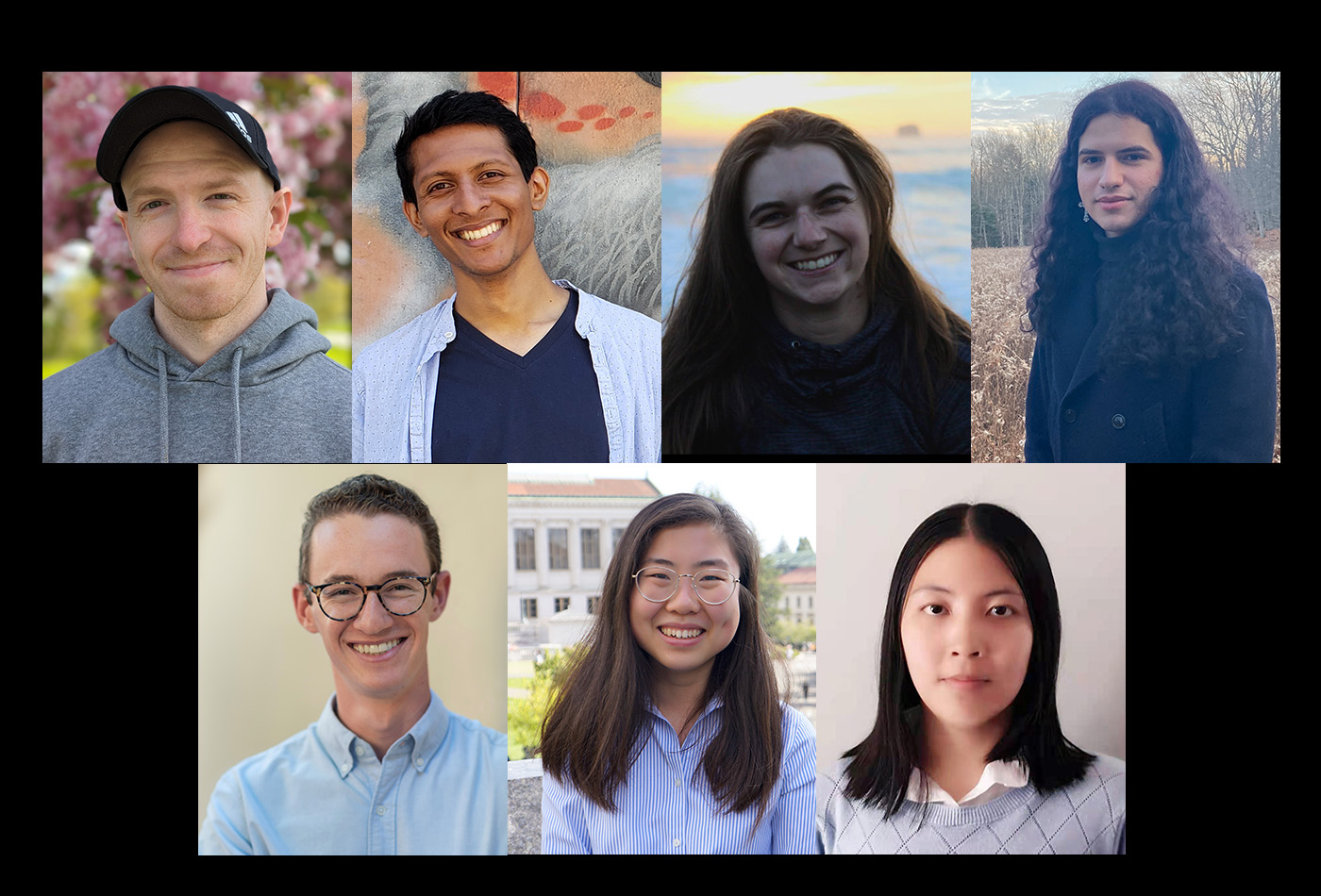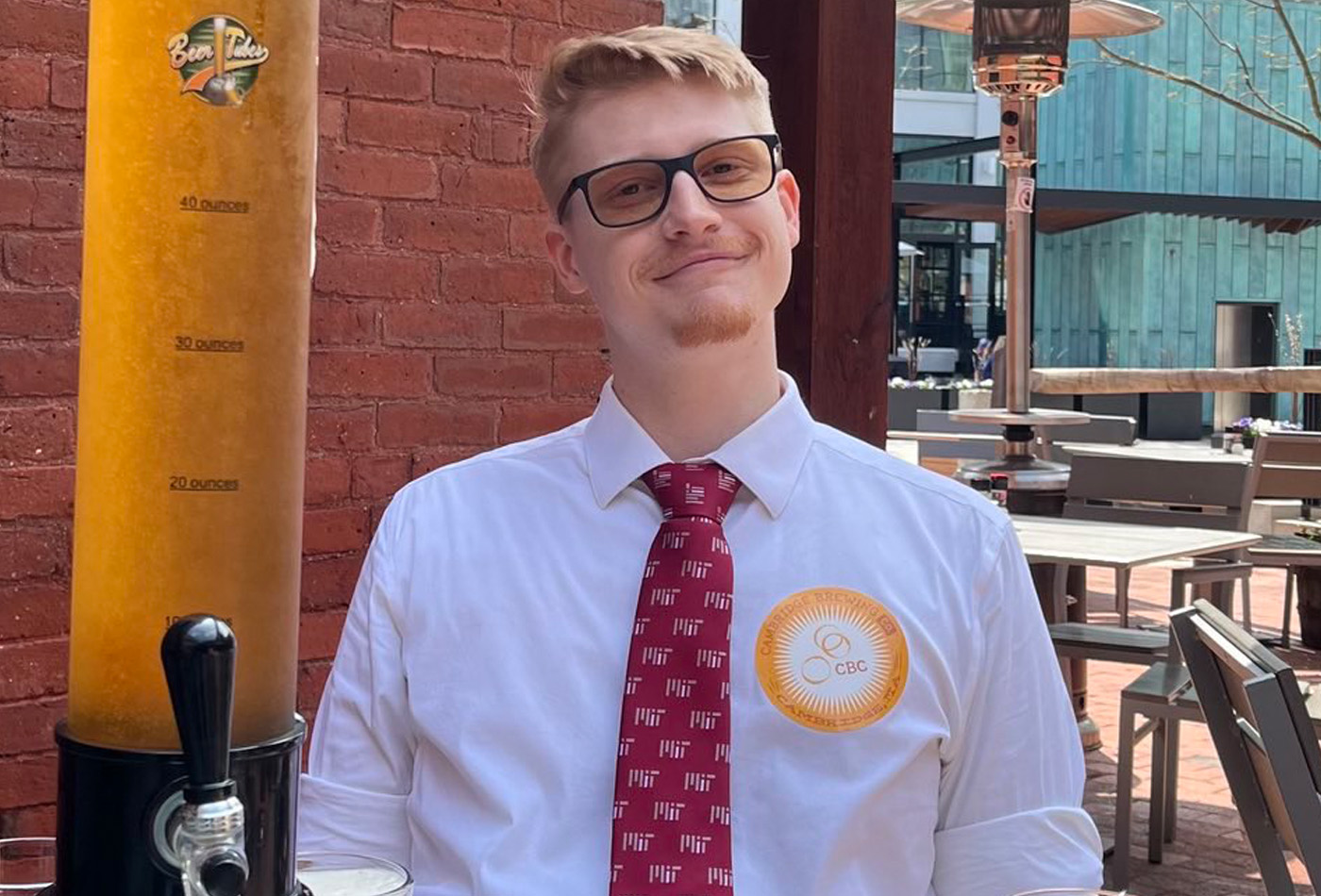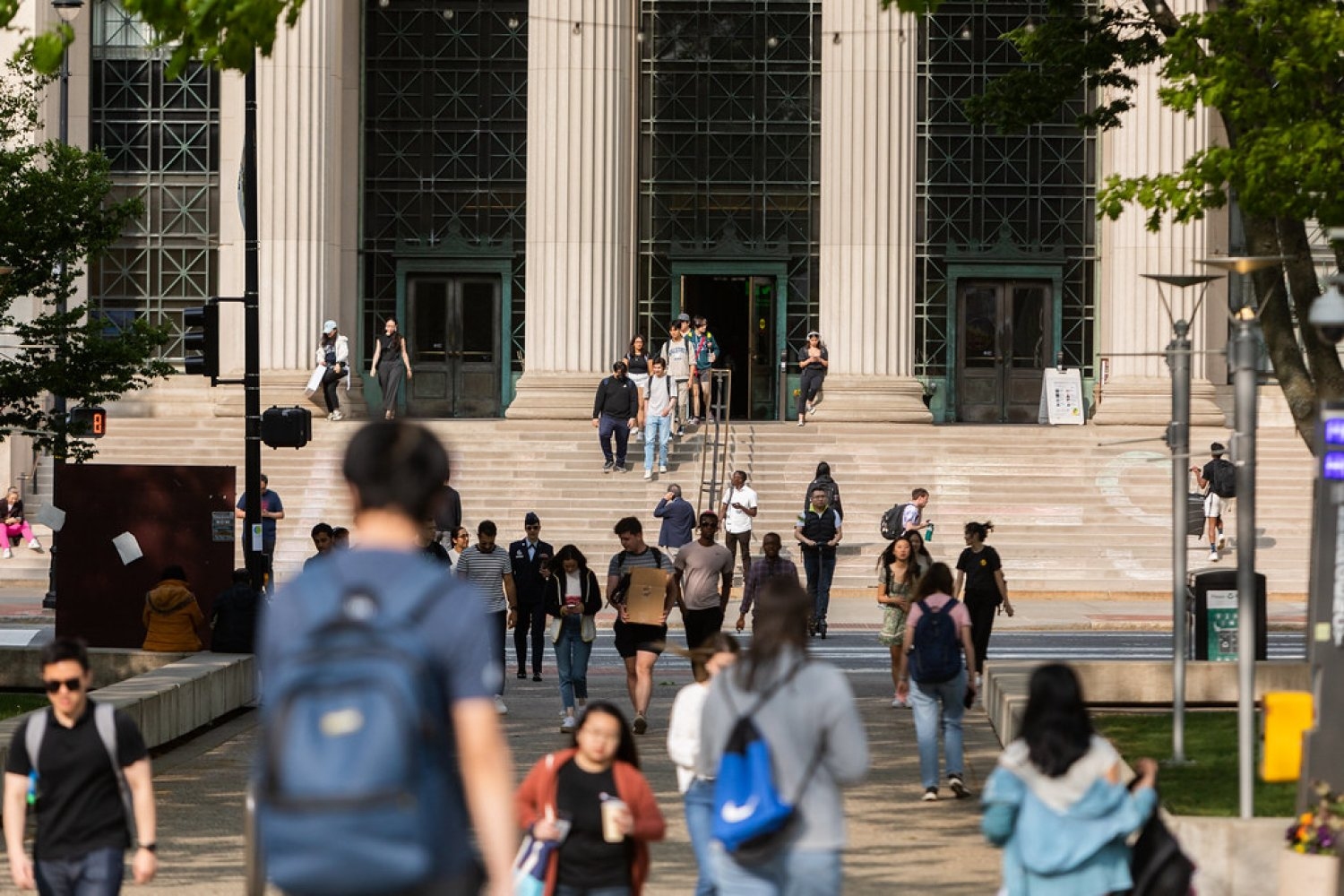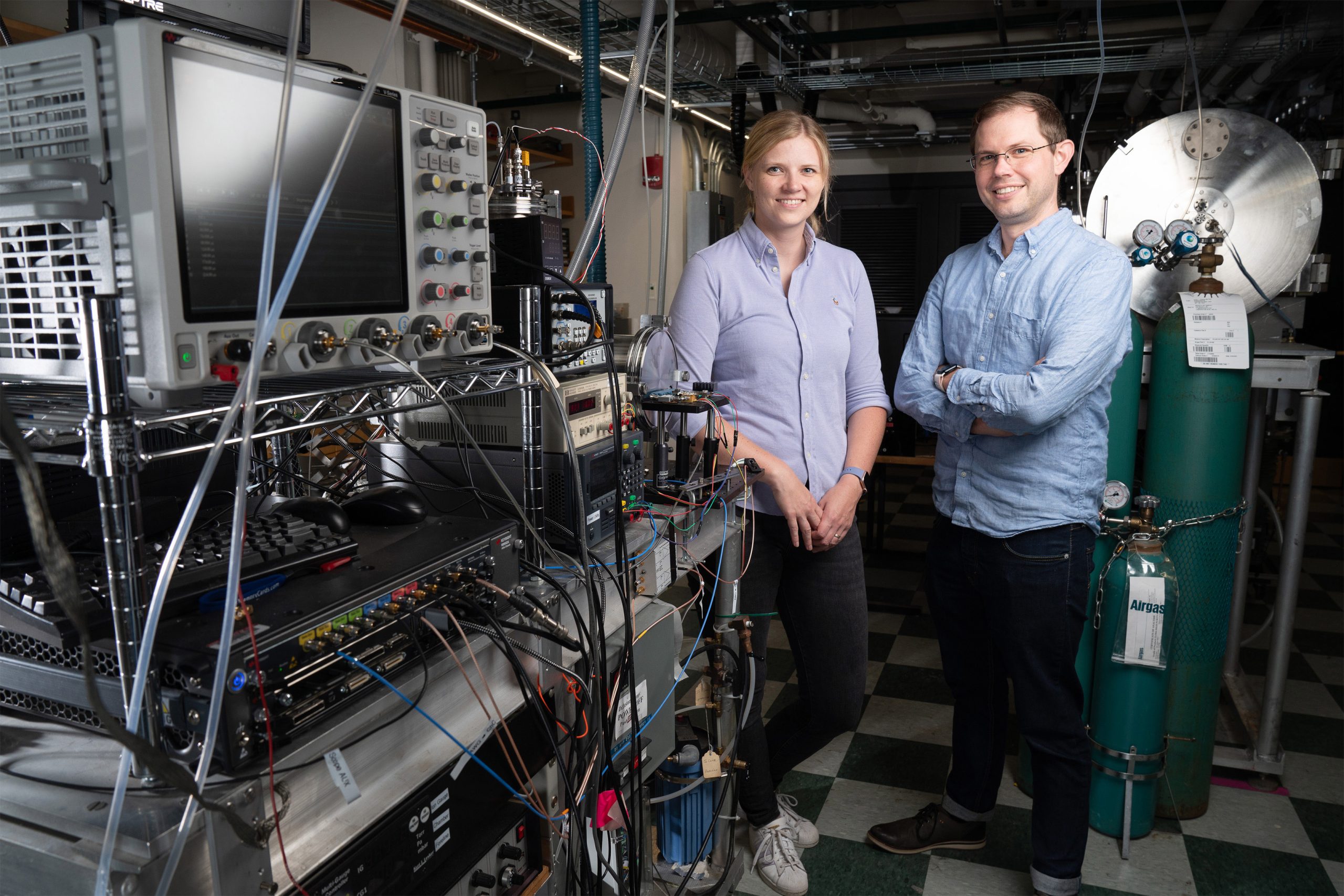Seven Invaluable Mentors receive Spring 2024 Mentorship Spotlight Awards
The winners were nominated by students, postdocs, faculty, and staff in recognition of their exceptional commitment to mentorship.
Seven members of the Department of Chemistry community have been honored with the department’s semi-annual Mentorship Spotlight Award. Established in 2020, this award recognizes individuals who demonstrate exceptional commitment to fostering a positive working environment for those around them, leading by example, and generally demonstrating outstanding mentorship. Each winner will be presented with a prize in the form of a crystal award and a monetary sum.
Spring 2024 Mentorship Spotlight Awardees:
Dr. Martin Holdren
Dr. Martin Holdren, a postdoctoral researcher, was chosen for his positive, uplifting impact on the McGuire Group’s atmosphere. “…Martin has successfully created a space where every member feels welcome, respected, and integral to the team’s success.”
Kunal Lodaya
Kunal Lodaya, a graduate student, was chosen for his patient, enthusiastic mentorship and leadership in the Surendranath Group. “… Kunal deeply cares about the well being of others and their success, and this makes him an excellent mentor, lab mate, and friend.”
“My motivation to be a mentor comes from my belief that the best science is collaborative,” said Lodaya. “I learn from my mentees just as they are learning from me, and we can all do better science as a result!”
In the Surendranath Group, Lodaya uses electrochemical techniques to investigate the mechanism of catalytic redox transformations on heterogeneous catalysts.
Sarah Quinn
Sarah Quinn, a graduate student, was chosen for her significant contributions to the scientific and cultural aspects of the Shalek Group. “Sarah helped establish formal frameworks and guidelines to ensure every member is paired with a mentor and receives guidance tailored to their needs. This has significantly enhanced each person’s sense of belonging and well-being within the lab, and aided in accelerating their scientific progress.”
“I desire to be a mentor to others because I believe science thrives in an environment where people feel valued and can build confidence, both of which are enabled by strong mentorship,” said Quinn. “I am exceptionally grateful to have had mentors at every stage of my life and career who drove me to improve as a scientist and as a person; I relish the opportunity to pass such experiences to others in my life.”
Quinn’s research with the Shalek Group investigates host immune response to HIV during different stages of infection and treatment. Using non-human primate models and disease analogues (SIV, SHIV), the researchers compare host immune state during different stages of untreated infection, antiretroviral therapy, and throughout therapeutic vaccine trials at a transcriptomic level. This allows them to elucidate changes in cell type abundance and function and identify pathways and genes involved in dysregulated immunity resulting from infection, in an effort to nominate targets for future improved therapeutics.
Robert-Cristian Raclea
Robert-Cristian Raclea, a graduate student, was chosen for his critical role as both Safety Officer and mentor, offering important scientific and technical advice to members of the Movassaghi Group. “Robert’s advice and mentorship covers a wide range of topics including design and execution of challenging experiments, detailed analysis of results, and clarity and precision in presentation of observations and results.”
“Mentoring people in a synthetic organic chemistry lab is a greatly rewarding experience to me,” said Raclea. “Not only does it mean that I am making sure that all of my coworkers are being safe when handling hazardous chemicals, but the process of teaching new skills to my mentees has allowed me to refresh my knowledge and gain some new insight into issues that I might have previously not been aware of.”
In his research with the Movassaghi Group, Raclea aims to continue to expand our group’s synthetic access to complex aspidosperma alkaloids. He is particularly interested in the selective functionalization of the aspidosperma core, leading to advanced reactive intermediates which can be leveraged for carbon–carbon and carbon–nitrogen bond formation strategies with a high level of stereocontrol. The pursuit of the researchers’ convergent and biogenesis-inspired approaches not only gives rise to mechanistic insights and the development of new synthetic methodologies, but may also allow for further biological investigation of this alkaloid family.
Harrison Toll
Harrison Toll, a graduate student, was chosen for his tireless commitment to nurturing younger members of the Peng Group. “Despite the heavy load of course work, TA duties, and building up the lab, Harrison dedicates significant amount of time in mentoring UROP students. His passion for research and mentoring has sparked a UROP student’s excitement in chemistry research.”
“My earliest lab experiences were shaped by wonderful mentors who continue to impact the way I do science today,” said Toll regarding what inspires his dedication to mentoring others. Alongside members of the Peng group, Toll synthesizes luminescent nanoparticles that the researchers use towards understanding disease on a single molecule level.
Sophia Weng
Sophia Weng, a graduate student, was chosen for her eager, extraordinary, thoughtful, and intentional mentorship to members of the Surendranath Group and beyond. “Sophia is the epitome of putting actions before words; instead of just talking about improving how something is done, she goes and gets it done. In our lab, every single member from the youngest grad student to the oldest postdoc could name something that is better in our lab from Sophia’s hands.”
“I have had many great mentors in the past who have been an integral part of my scientific journey so far,” said Weng. “Working with good mentors has made me realize how important mentorship is to the entire graduate school experience; as such, I hope to use the skills and knowledge passed down to me by my prior mentors in order to be a good mentor to newer students in the department.”
The direct interconversion of electrical and chemical energy is essential for a sustainable energy economy. Electrochemical CO2 reduction (CO2RR) and hydrogen evolution (HER) are two important energy-to-fuel reactions. While much effort in recent years has gone towards the development of new polymers and formulations for alkaline CO2RR or HER electrolysis applications, little is known about how the organic functional groups in these charged polymeric materials affect the interfacial reaction environment, especially since a large excess of alkali metal salts is often added in these studies. To address this knowledge gap, Weng and her fellow researchers have developed a method for studying water-soluble organic cations as bulk supporting electrolyte, with the goal of understanding the intrinsic ability of organic cations to alter the rates of CO2RR and HER. They have demonstrated that, contrary to prior claims in the literature, organic cations are capable of supporting CO2RR in the absence of alkali metal cations. With this finding in hand, Weng is now studying the effects of organic supporting electrolyte cation structure on the rates of CO2RR and HER.
Jessica Zhang
Jessica Zhang, a graduate student, was chosen for her invaluable guidance, passion for teaching, and genuine concern for her mentees both in and out of the Hong Lab. “Whether it was responding to my emails late at night, inviting me to email again if there was anything I still needed help on, or patiently explaining papers I struggled to comprehend, Jessica’s dedication to my classmates’ and my learning distinguished her from any other mentor I have had at MIT.”





